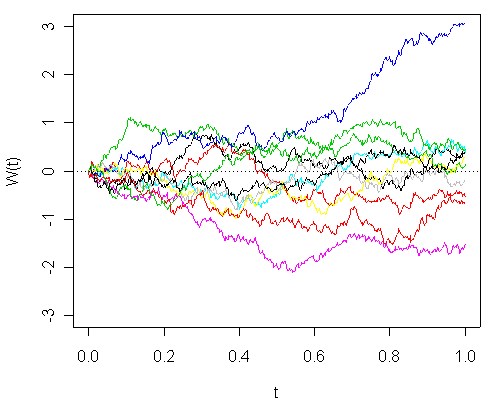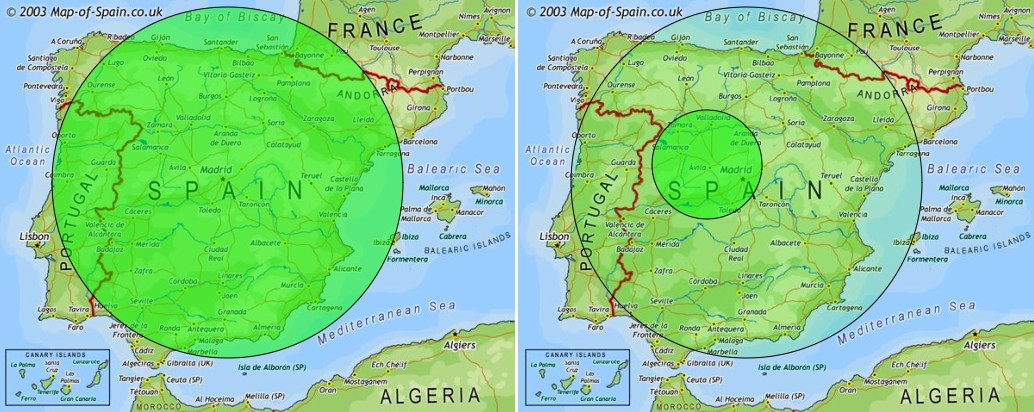The complete question was:
1 – When probability is invoked it commonly implies or states that something “will probably” or “is likely” to happen. Doesn’t this suggest that we can predict the future or just by thinking about it effect the future?
Physicist: It does suggest that we can predict the future. In fact, some people formulate the definition (and purpose) of science as an attempt to predict the future.
This new probability distribution is called a “conditional distribution”. You can tell when someone is using a conditional distribution because they’ll say things like “the probability, given that …”. It may seem as though perceiving the dog has changed something in the universe, but keep in mind what comes first. The dog’s location dictates where you’ll see it, not the other way around.
Another classic is the phenomenon of “hot” and “cold” tables. You’ll find that sometimes a craps, blackjack, etc. table will suddenly be especially lucky or unlucky for a while. It’s extremely common for people to gravitate toward tables during a winning streak, or, if things have been going well for a while, to get nervous and leave. Both are examples of the belief that perception affects reality, or at the very least, that random things aren’t actually random.

- Examples of random walks, specifically the “Wiener Process”. Sometimes it looks like there’s a pattern, but there’s not. And yes, that’s really his name; “Norbert Wiener“.
Here’s a thought experiment (or if you have the time, actual experiment): Have a friend flip a coin. Try to guess what it is. How often do you expect to get it right? Do the same thing, but this time have your friend look at the coin first before you guess. Do your guesses get any better or worse? Does someone “out there” with information have any influence on probability? Hells nope.
At the end of the day, every single experiment that you can do that involves chance, and somebody having some knowledge about results, will still act exactly the same as an experiment where nobody knows anything.
For no reason, here’s a quote about Wiener: “Gifted for abstract sciences, philosophy and literature, he also had an inclination to the fine arts. These tendencies were certainly enhanced by a meditative temperament partly due to his ungainliness and myopia, which disqualified him for the usual games of physical skill popular among youngsters…”







